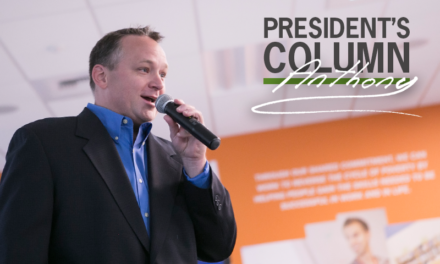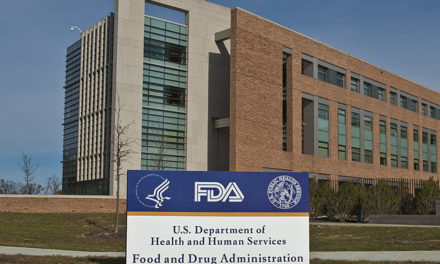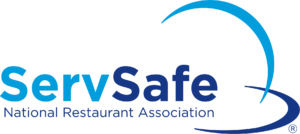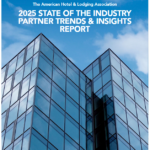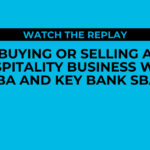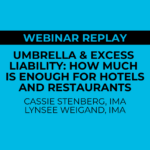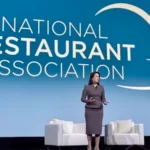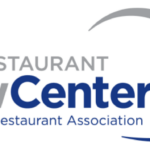Part 2
During this month’s CEO Podcast, Washington Hospitality Association President & CEO Anthony Anton was out of town, so board chair Brian Moreno and vice chair Tiffany Turner sat in for him. Moreno is co-owner of a franchised business organization with McDonald’s Hamburgers and Turner owns and operates Adrift Hotel.
Their guest was Steve Scranton, chief investment officer and economist at Washington Trust Bank, and the three discussed the economic outlook of 2023.
In Part 1 of this story, Scranton discussed what he thinks the economy will do in 2023 and changes he’s seen in the labor market recently. In this part, he’ll talk about the after-effects of a recession and what to look for to recognize a recession.
Turner asked Scranton what his prediction for inflation is, once the recession hits the economy.
“People really have to realize for a majority of well-run businesses, a recession is more where you see opportunities,” Scranton said.
He said he has studied every recession going back to the 1970s and historically, after every recession inflation was far lower than it was before the recession. He said that what we see on average is that job losses fall by about 2.6%, and the peak unemployment rate on average is around 7.6%. This might be good news from an employer’s point of view because soon there will be a larger labor pool after the recession.
“That creates the opportunity again to pull people back into the marketplace because they don’t have the leverage anymore. Now they need a job to be able to pay bills and everything else,” he said. “That’s what I try and tell people, ‘Nobody likes to hear recession,’ but from a business standpoint, especially a well-run business that prepares for a recession and is ready for it when it comes, you may well see good opportunities with your value proposition to be able to pull in people that you want to pull in.”
Turner asked what indicators people will see if a recession is on its way.
Scranton said he likes to focus on the consumer and watch what is going on in his neighborhood to see indications of the economy moving.
“The only real sign so far is the low-quality car loan delinquency rates are starting to rise. I would be paying attention to any news of credit card companies talking about delinquencies rising or foreclosures on bad debts starting to rise,” he said. “We’re not there at this point.”
He said to go to the mall and watch to see if people are leaving with bags in their hands or not. Check to see if business in your restaurant starts dropping off. Are your neighbors selling their cars or are they going on vacations – watch what their habits are to see if the economy is changing.
Moreno wanted to know how we prepare to insulate ourselves from rising cost pressures, such as rising food costs, supply chain issues or operational costs.
Scranton said that his agricultural clients in the Central Washington region have been telling the bank that their input costs have not gone down, mostly in fuel costs.
“They are going to try as best they can to pass those costs through when they have harvest season,” he said.
Europe and the United States made the decision to move to green energy and we don’t have the infrastructure yet to convert to green energy.
“What I tell people is that we need to prepare for, budget for and ultimately figure out how to work with fundamentally higher energy prices. That $4-5 a gallon may be the new normal for the U.S.,” he said.
After the recession, Scranton doesn’t think we’ll continue to see the rising prices like we’ve seen lately, but he’s also not going to expect that we’ll be back to where we were in 2019.
“I think you need to figure out how do you make the adjustments. People are still going out and they’ve accepted the costs and now lunch prices and dinner prices are higher.”
Scranton pointed out, as a silver lining, that hospitality owners and operators are entrepreneurial by nature and have figured out how to navigate tough times and if there is any industry flexible and willing to try new things to survive it’s the hospitality industry.
In his closing remarks, Scranton offered some advice for the industry.
“Prepare for a recession; don’t behave like we’re actually in a recession. The worst thing you can do is create a self-fulfilling prophecy…and you stop doing what you do for a normal business. That will guarantee a recession. I’m just simply saying the risk is high, prepare for it and if you do you’ll get through it and be ready for the opportunities that show up.”



